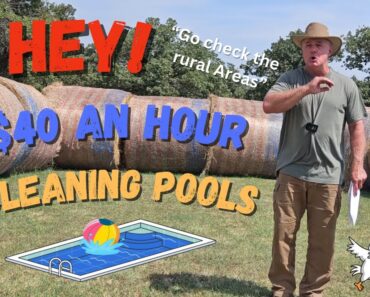Part I – Rodent Infestation: How to Clean After It and Safety Gear (I)
Part II – Rodent Infestation: Common Diseases and How to Protect Yourself (II)
In many ways, cleaning a vehicle after it has become infested with rats or rodents is similar to cleaning a building. This time, you will need to go over each area of the vehicle, including the engine compartment. Rodents have been known to nest in air hoses and other locations where they have material that appears useful for nesting. Since rodents can impact air exchange to the engine, you should always check for the presence of rodents, especially during the winter months.
If you have spent any time at all in a vehicle, you know that cramped spaces can make for complications you may not have to deal with in household settings. In particular, many animals will seek to escape a dangerous situation if they see a path to safety. When you dig around in the engine compartment, a trunk, or other confined areas, you can easily be bitten by a rodent in hiding. Therefore, before you try to clean up or repair damage caused by rodents, it is essential to wear bite-proof gloves and use a prodding stick.
From this point forward, you can use a process similar to the one used for cleaning up a room or building. Ensure that you seal off all rust holes and other areas that rodents may have used to get into the vehicle. While you will not be able to seal all of them off, at least you can repair the ones that are not a typical structural feature for the vehicle.
If you have to clean up rodent infestations in the passenger area or trunk, you will need to use disinfectants safe to use on the upholstery in the vehicle. Alternatively, you may need to take the car to an upholstery shop. As with ducts in your home, it may be necessary to take your vehicle to a mechanic if you suspect that rodents have compromised the air system.
What About the Garden or Crop Growing Areas?
From problems at the southern border to massive weather patterns interfering with food production, there is no question that food shortages may well be on the horizon. That, in turn, means that more and more people are looking to home gardening to feed themselves and their families. While there are many benefits to a home garden and homesteading, rodents can and will take over the area if you aren’t careful and know how to get rid of them. Aside from consuming your crops, rodents will still spread disease via urine, saliva, and droppings. If you do wind up with a rodent infestation, you may need to take additional steps to ensure the food produced is safe to consume, or you may have to discard it and plow the area under entirely. Here are some things you can do to keep your garden, yard, and homestead as free of rodents as possible.
- Keep Leaves and Vines Off the Ground as Much as Possible – rodents will hide under just about any leaf cover they can find. Always lift vines off the ground and place them on arbors or poles so that there is as little cover on the ground as possible. Try to avoid using straw or other materials that rodents might find useful as nesting material.
- Use Rodent Guards on Tree Trunks – aside from protecting valuable trees from damage, these guards will also serve to deter rodents looking for a meal on tree bark.
- Keep Grass Short – tall grass and grass clippings provide both nesting places and materials for rodents. Keeping your lawn short will help reduce the amount of time it takes for clippings to decompose, which will also help deter rodents looking for nesting materials.
- Avoid Having Garbage, Food, Or Other Edibles Around the Yard and Porch – make sure trash cans are correctly secured. If you want to feed the birds and other wild animals, use feeders that rodents cannot get into. It will also be to your advantage to make sure these feeders are far enough away from your garden area.
- Have A Surveillance System in Place – surprisingly enough, there may be dozens to hundreds of rodents running around your yard without you knowing about it until you notice chewed-up fruits and vegetables. Unfortunately, once you see these signs of rodents, it may be very hard to save the crop and uproot the rodents. Keeping night vision with motion sensors in your garden area can help detect rodents’ presence before they have a chance to take your garden over as their territory. You should also keep at least one or two cameras aimed at electric lines and rooftops. If you observe recordings from these cameras near dawn or dusk, you may see rodents using them to move from one area to another. Once you see a rodent on the cameras, then you can put your plans for dispatching them as quickly as possible into action.
- Eliminate Hedges and Other Possible Nesting Sites – aside from tall grasses, rodents will also nest in hedges or other areas where cats and other predators will have a hard time getting at them. If you must have hedges, make them thinner so that there is little area for them rodents to nest.
- Make Sure Rodents Don’t Take Up Residence in Compost Barrels – if you are serious about having a sustainable garden, you will need one or more compost barrels. Unfortunately, mice will be drawn to the smell of these barrels and will do everything they can to colonize the area around them. You may want to use traps and baits in this area to capture and kill any rodents that get into the area.
- Learn How to Recognize Rodent Trails and Use Them to Your Advantage (Including Underground Trails and Burrows) – surprisingly, rodents will make trails outdoors, just as they do indoors. That includes paths to sources of water, food, and nesting sites. Once you know where these trails are and what they mean, you can exploit them to get rid of rodents. Among other things, you can use these trails for setting up traps and electric shock wires that can be used to repel rodents. It is also important to note that some traps will work better than others. While many rodents will avoid snap traps, they may still fall for bucket traps and get killed by them. If one trap type does not work, try something else.
- Use mint and other deterrent plants – for the most part, rodents tend to avoid mint plants because they do not like their smell. You can try surrounding your garden or edible plants with mint to see if it helps deter the rodents. Ensure the border is relatively thick so that mice don’t get the idea they can forge through the mint to get at the crops of interest.
- Work with Your Neighbors to Eliminate Rodents – even though you may have rodents proofed your yard and garden, neighbors may have old sheds or other areas that rodents will nest in. Because rodents are a serious health hazard, it is important to educate your neighbors and help them eliminate rodent territories if needed.
- Eliminate Brush Piles – this is another area where rodents love to nest and live.




























